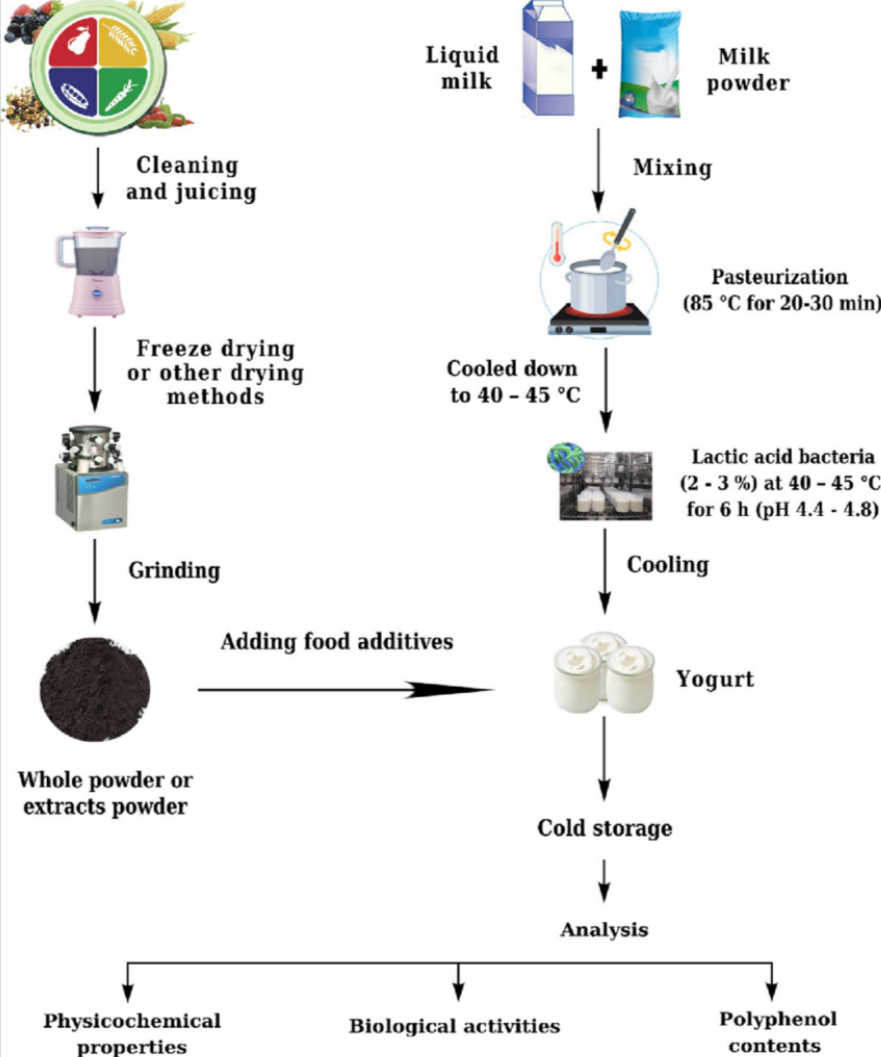Edexcel iGCSE Biology-6.7 Role of Bacteria in Yoghurt Production- Study Notes- New Syllabus
Edexcel iGCSE Biology-6.7 Role of Bacteria in Yoghurt Production- Study Notes- New syllabus
Edexcel iGCSE Biology-6.7 Role of Bacteria in Yoghurt Production- Study Notes -Edexcel iGCSE Biology – per latest Syllabus.
Key Concepts:
6.7 understand the role of bacteria (Lactobacillus) in the production of yoghurt
Role of Bacteria (Lactobacillus) in Yoghurt Production
🌱 Introduction
Yoghurt is a fermented milk product made using specific bacteria.
The main bacteria used: Lactobacillus spp.
These bacteria convert milk sugars into lactic acid through fermentation.
Lactic acid thickens milk and gives yoghurt its sour taste.
⚡ Process of Yoghurt Production
- Milk Preparation:
Fresh milk is pasteurized → kills harmful bacteria.
Milk is cooled to ~40–45°C → ideal for bacterial growth. - Inoculation with Lactobacillus:
Starter culture of Lactobacillus is added.
Bacteria ferment lactose (milk sugar) → lactic acid. - Fermentation:
Lactic acid lowers pH of milk → causes proteins to coagulate.
Milk thickens → develops smooth, creamy texture. - Cooling & Storage:
Fermentation is stopped by cooling.
Yoghurt is then ready for consumption.
🌾 Importance of Lactobacillus
- Preservation: Lactic acid inhibits growth of harmful microbes
- Texture & Taste: Gives thick, creamy consistency and sour flavour
- Health Benefits:
- Acts as probiotics → improves gut health
- Enhances digestibility of milk proteins and lactose
📊 Summary Table
| Step | Role of Lactobacillus | Outcome |
|---|---|---|
| Fermentation | Converts lactose → lactic acid | Thick, sour yoghurt |
| Acid Production | Lowers pH | Inhibits harmful microbes |
| Probiotic Action | Improves gut flora | Health benefits for digestion |
💡 Quick Recap
Lactobacillus = key bacteria in yoghurt → ferments lactose
Sugar → Lactic acid → thick, sour yoghurt
Low pH preserves yoghurt & improves gut health
🧠 Mnemonic: “Lacto Loves Milk → Acid Thickens & Protects”
